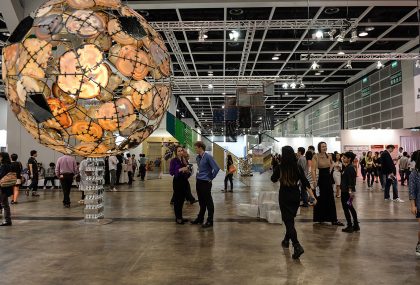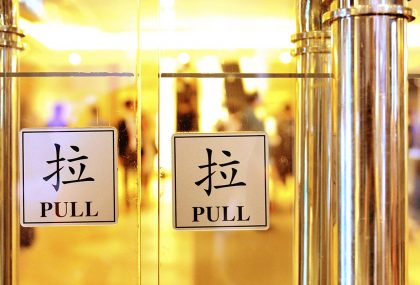Take a breather at Hong Kong’s Yuen institute
Founded by Nicole Chabot's grandfather in 1953, the tranquil Yuen Yuen Institute is a world away from Hong Kong's busy metropolis and is a place of pilgrimage – and picnics – for Nicole, her extended family and countless travellers to the city too
Hong Kong is a place renowned for its juxtapositions and dynamism, and even 16 years after the change in sovereignty, it retains a strong flavour of East-West fusion. As a Eurasian of Chinese-French parentage, I feel very at home here – and I like to think my background gives me an unusual perspective on the city I write about in my books.
A city that loves change
So rapid is the pace of change here that the city’s motto could well be ‘Out with the old and in with the new’. Luckily, legislation surrounding land used for religious purposes has prevented one very special place, the Yuen Yuen Institute, from being swept away. The institute is unique of its kind in Hong Kong in that it was founded to expound all three of the Chinese ‘religions’: Confucianism, Buddhism and Taoism.
This sprawling 16,610 square metre complex was opened in 1953 with the backing and support of a number of wealthy enthusiasts – and one of them was Chiu Lut Sau, a rice merchant who also happened to be my grandfather.
Though, sadly, my gung gung passed away before I was born, his intriguing rags-to-riches life story has fuelled my interest in writing about my city, and I often wonder what he and my grandmother would make of contemporary Hong Kong.
A spiritual retreat
His institute was designed to be a place of peace and contemplation. Red, green and gold temples, pavilions, towers, monasteries, halls and ponds dot the grounds, while chrysanthemum and bonsai shows are held annually. The buildings are classically Chinese with tiled roofs and upturned eaves, and the tranquil surroundings provide a great escape from Hong Kong’s crowds – provided, that is, your visit doesn’t coincide with one of the main Chinese festivals, when numbers can reach up to 20,000.
The characters of the Institute’s name denote the essence of each religion it encompasses: ‘completeness’ in Buddhism, ‘profundity’ in Taoism, and ‘learning’ in Confucianism. Deities of the three can all be worshipped at the institute, which promotes the integration of their teachings. My grandfather was a Taoist and Buddhist but married my grandmother who was Christian; and my extended family today, the descendants of the three wives whom he married before polygamy was made illegal, is comprised of both. The Christians among us have no difficulty with kowtowing to the images of our loved ones. It’s ritual.
A family pilgrimage
So at least once every year, my extended family visits with joss sticks at the ready to venerate our late family members. Like other worshippers, we begin at the Yuen Shun Temple where prayers are said to the gods for blessings and then head to the Institute’s ancestral halls where respects are paid to ancestors. Here, row upon row of mostly black and white pictures of the deceased cover the walls. Underneath the images are small offerings, including fruit and sometimes even packets of cigarettes. Meanwhile, paper effigies of worldly comforts can be purchased for one’s ancestors before being burned on site.
Typically, my family and I line up and take turns to kowtow three times with three joss sticks at the images of our ancestors, reserving offerings such as roast pork, dim sum, and oranges for the trips we make to my granddad’s grave, laid out according to feng shui principles on a hillside in the New Territories. The grave is huge and after respects are paid, my immediate family members, aunties, uncles, cousins, nieces and nephews consume the offerings we have brought sitting on it, using the grave as a festive picnic ground to catch up with each other’s news. Such visits are important family occasions across Hong Kong.
Visitors welcome
But, a visit to the institute can simply be a fun day out. The utilitarian-sounding, no-frills Y. Yuen General Restaurant is open daily from 11am to 5pm and dishes up excellent vegetarian fare (I recommend the braised bean curd, sautéed vegetarian chicken, and deep fried taro fish).
Contact the Yuen Yuen Institute on + 852 2492 2220. To get to the Institute from Hong Kong, take a 10-minute taxi ride from Tsuen Wan MTR Station Exit B1 or the number 81 minibus from Shiu Wo Street. Entrance is free.
Nicole Chabot is the author of Kowloon: Unknown Territory (Blacksmith, 2012) and Street Life, Hong Kong: outdoor workers in their own words (Blacksmith, 2014)
Photo by © Li Dan/Redlink/Corbis



